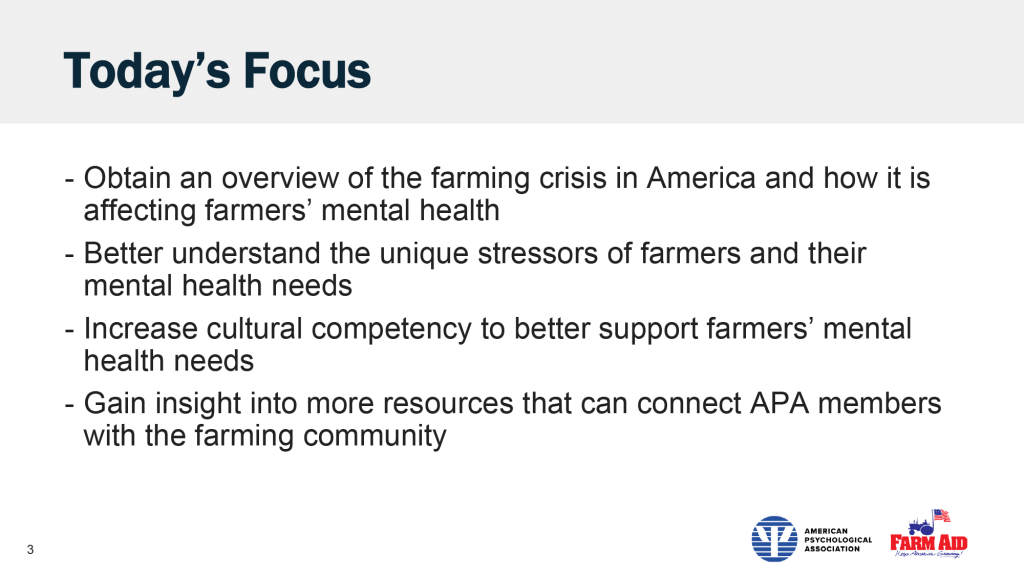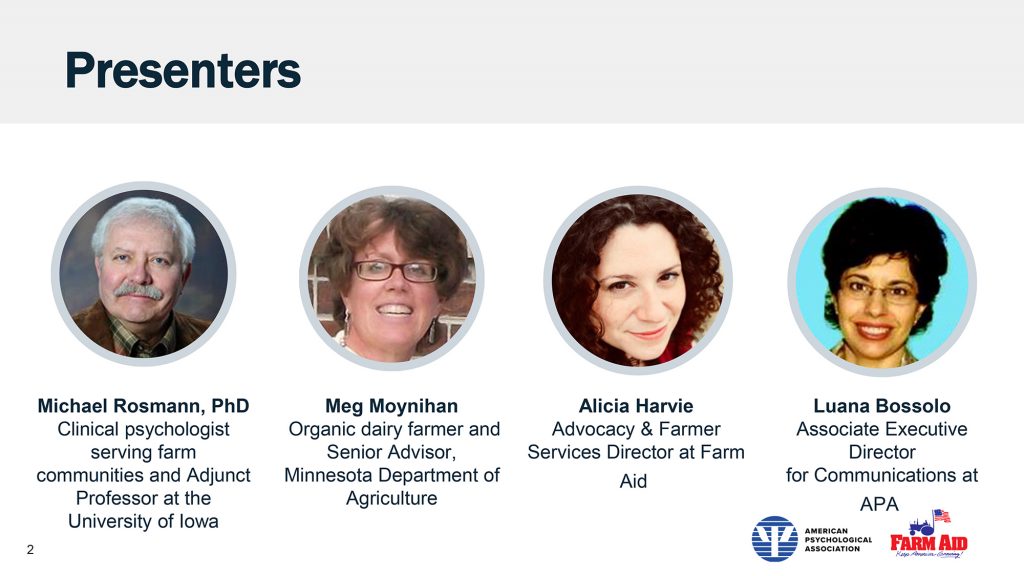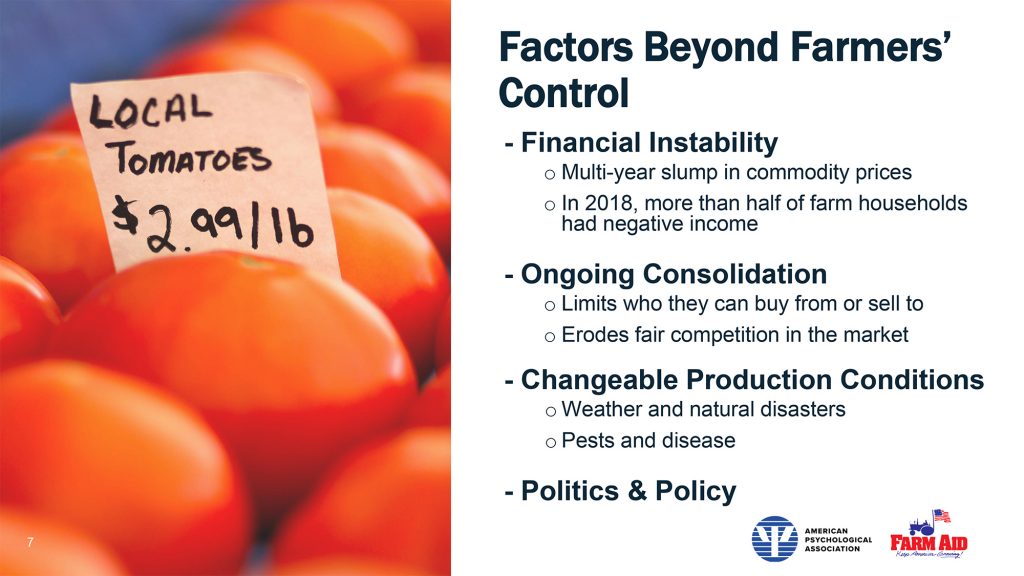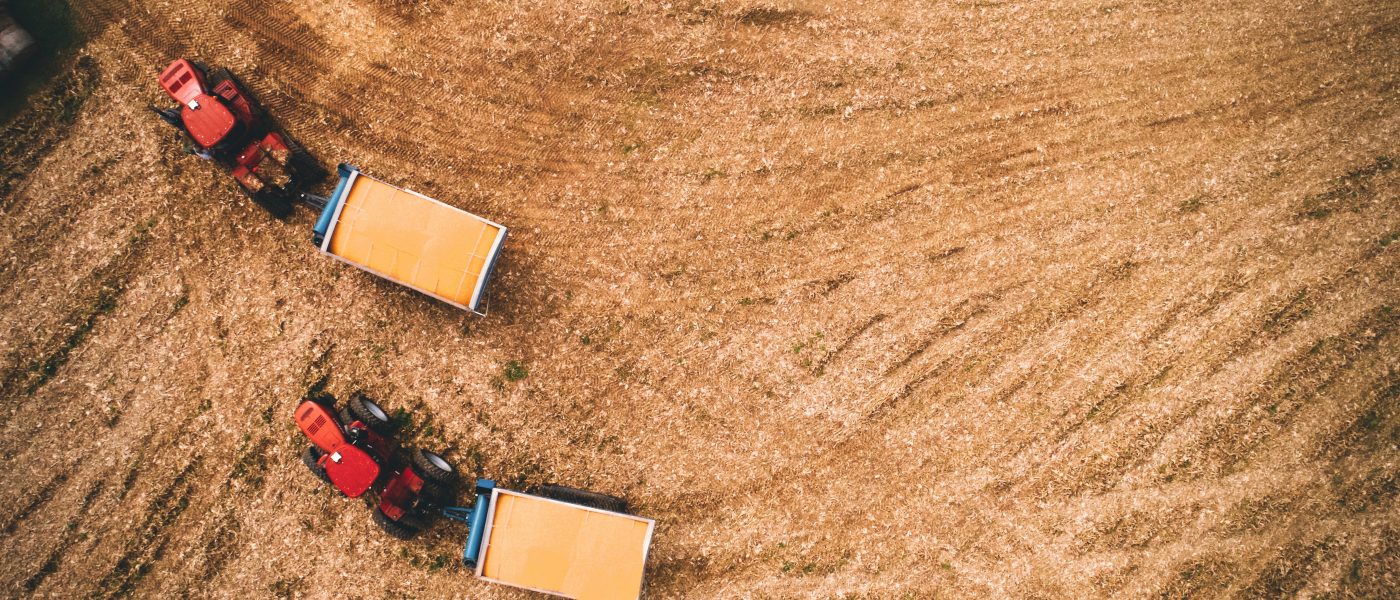Last week, Farm Aid and the American Psychological Association (APA) partnered to present a webinar about farmer stress and behavioral health. As the leading scientific and professional organization representing psychology in the United States, APA has more than 118,000 researchers, educators, clinicians, consultants and students as its members. Our goal in partnering with them was to reach an audience of behavioral health professionals who either currently work with farmers and agricultural workers or who wish to work with an agricultural population.

Slide showing the goals of the webinar.
Webinar presenters included Farm Aid’s Alicia Harvie, director of farm advocacy and farmer services; Meg Moynihan, a Minnesota dairy farmer and a senior advisor at the MN Department of Agriculture; and Dr. Mike Rosmann, an APA member and psychologist who works with family farmers through AgriWellness, Inc., a nonprofit seven-state program he founded which promotes accessible behavioral health services for underserved and at-risk populations affected by the farm crisis and by the ongoing transitions in agriculture.

Alicia talked about the unique stressors that farmers face, from weather-related disasters to low prices and policy decisions that affect their businesses. A major theme in all these challenges is that they are out of the control of the farmer, which makes it very difficult to take steps to address the root cause of farm stress. Alicia talked about what the current farm economy means for farmers, the reality that most farmers have to do the full-time work of the farm in addition to an off-farm job, the dairy crisis in particular and this year’s extreme weather events.

One of the slides from the webinar.
Meg Moynihan talked about the incredible pressure farmers face to keep their family’s farm legacy going for the next generation. She touched on what it means to operate in what is usually a family business, and one that rarely allows a farm to get off the farm and away from it all. She also spoke of the pressure to keep up appearances for fear that showing signs of struggle could lead a neighbor or competitor to swoop in and capitalize on their struggle. Finally, Meg explained the barriers that farmers face in obtaining behavioral healthcare, if they do decide to seek it, including the stigma of asking for help.
Dr. Mike Rosmann talked about how psychologists can better connect with farmers, including knowing agriculture, speaking farmers’ language (both their actual language and the vernacular of farming), being available when farmers are most likely to reach out (in the evenings or on weekends) and more. Both Dr. Rosmann and Alicia emphasized that working with farmers to manage stress usually involves more than one resource, as the root cause of the stress typically needs its own experts to help address it. Dr. Rosmann and Alicia covered some of the resources that are available to psychologists, to either learn more about agriculture and farmers or to connect to farm organizations where they can offer their assistance.
Nearly 600 APA members registered for the webinar and asked great questions of the panelists, including about the challenges specific to treating farm workers, as opposed to farmers. We are proud to have partnered with APA to offer this webinar to their members to create additional awareness about the unique stressors farmers face and their barriers to receiving behavioral healthcare.
Helping farmers deal with stress and depression can be challenging, even to the most experienced trained psychologists. Farming in unique — it’s not just a job; it’s an identity. As a result, managing farm stress is not just a matter of taking a vacation or taking a different job. We’re grateful to have the experience to speak directly to behavioral health practitioners who can reach out to farmers and offer them tools to manage and strengthen their behavioral health, especially in trying times like these.
Learn more about the resources available to farmers by visiting our Farmer Resource Network..



